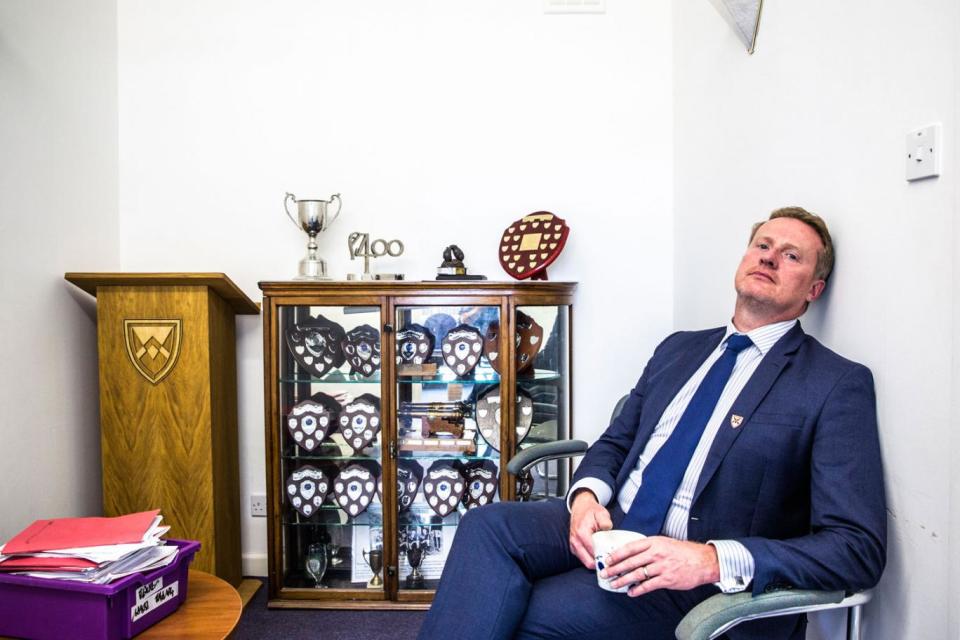School: Chaos reigns in the Marlwood classroom as Mr Pope tries to hold it all together

Somewhere in the middle of this engaging documentary about a troubled school there is a moment of reflection between the teachers and the head.
Teaching, says one teacher, involves an element of acting, as does being a leader.
The moral seems to be that teachers must put on a brave face and pretend everything is all right.
They must do this for two reasons. First, because being a teacher involves setting an example, and the pupils will respond better if a good example is set. And second, because there is a chance, albeit a faint one, that things are not as bad as they seem.
The headteacher, Mr Pope, agrees but it remains ambiguous, ripe with passive aggression. We’ll keep on acting, the teacher seems to be saying to the head, because we know you are acting too.

Mr Pope has a lot of moments like that. At Marlwood, a school near Bristol which has been put in special measures by Ofsted, he is condemned to talk in a special language, to sound agreeable when doing disagreeable things. When there is talk of the school being in crisis, he prefers to muse about the “difficult financial context”. When he is confronted by a polite but concerned parent, who wants to know why her child is being taught maths by a PE teacher, he says: “It’s a reasonably well-rehearsed national dialogue.”
As a viewer, with no other knowledge of this school, it’s hard to know why it appears to be failing. It’s a rural school with a shrinking catchment area, as parents prefer to send their children to city schools.
Fewer pupils means less funding, which means greater pressure on teachers, which leads to still fewer pupils and staff shortages, because no one wants to park their career in a failing school — and so it goes, until you get to the part where everyone is trying not to talk about downward spirals and sinking ships. Mr Pope does pretty well at this but he cracks after another phone call from Ofsted. “The sword of Damocles is nigh,” he says, which is another way of saying that every crisis is an opportunity, or something.

Of course, just as teaching is a form of acting, so is performing in a fly-on-the-wall documentary. Mr Pope, unluckily for him, is the star of this show, and he dissolves slowly. By the end, in a magical moment of liberation, he swallows his sword and forgets about the structure moving forward and the difficult financial context and starts to speak human again.
But what of the school? Well, let’s not have spoilers, because watching Marlwood’s travails does cause you to wish it well as an institution, while also wondering about the logic of a system which reacts to symptoms of failure by withholding resources.
The chief executive of the Castle School Education Trust, Will Roberts, whose corporate background is offered as context, is even more abstract with his language, suggesting that the pupils are “both the product and the customer”.
He talks flatly of the need to balance the books, and of “adverse consequences”.
Of Marlwood, he notes: “If this was a business, we’d put a big sign on the front saying: ‘We’re closing at Christmas, thank you for your custom.’”

 Yahoo News
Yahoo News 
